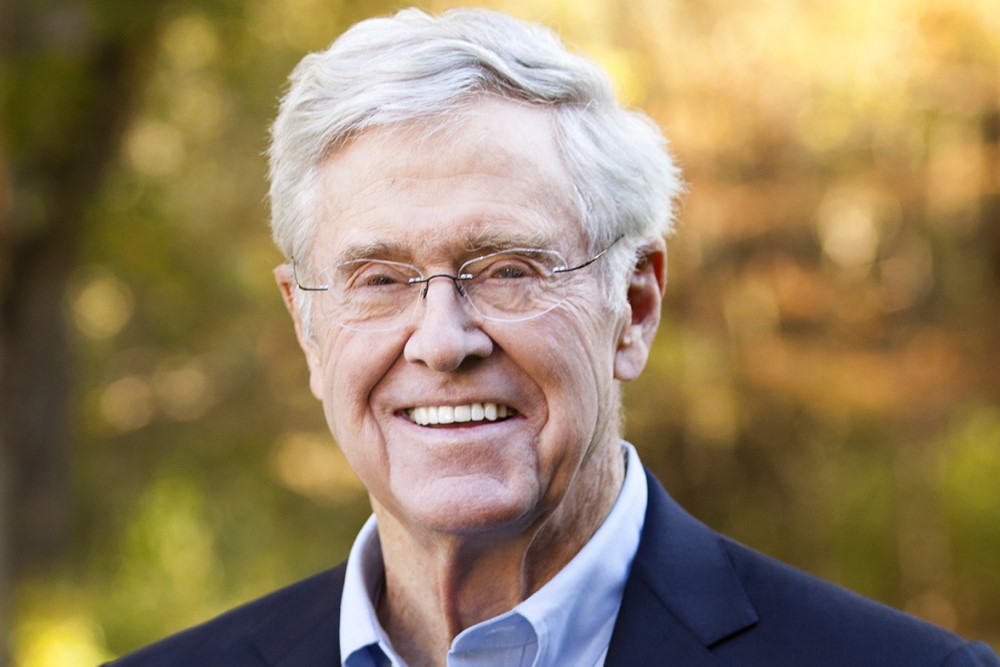Wrongs that Are Wrong to Forgive?
On November 13th, The Wall Street Journal published that Charles Koch, one of the infamous Koch brothers who have wielded an unprecedented influence over the media coverage and political direction of the U.S. in recent decades, now regrets his role in dividing the nation and contributing to our present circumstances. This apology was met with a range of reactions, from indignation, skepticism, and generous calls for attitudes approaching gratefulness that he may change his ways. Koch’s reversal raises questions about when it is appropriate, obligatory, or impermissible to forgive someone for the harm they’ve caused or the wrong they’ve committed.
These standards are complicated because the paradigm case of forgiveness involves close, personal relationships. Because we each are obviously not perfect, there are times when we fail to live up to our commitments to one another and this can cause harm and disappointment in those that we care about. If a friend breaks a promise, for instance, and shows regret, forgiveness can provide a way to move forward. The show of remorse can take various forms (some people prefer apologies, some are moved by a commitment to behave differently in the future, etc.), but no longer holding a wrong-doer “to account” is a form of forgiveness that we recognize easily from our day-to-day lives.
In this model, forgiveness could be “for” both the person who was harmed as well as the wrong-doer; forgiveness helps the shared relationship. In other cases, forgiveness can be a lightening of the emotional load of the person who has been harmed. To carry the weight of having been treated badly can be difficult. It can erode your faith in others or occupy more of your mental energy than you’d like. Forgiveness, in these circumstances, can be a lifting of the emotions wrapped up in blaming the one who hurt you. It could be a good thing for the person wronged.
Another model of forgiveness focuses more centrally on the person who failed. Instead of forgiveness functioning as a way of letting go of the labor tied up in ongoing blame, this model emphasizes forgiveness as a sort of gift we can give to one who has committed a moral wrong. It can seem like we ought to forgive, then, either for our sake as the harmed, or for the person who harmed us’ sake.
But there are other cases where it can seem wrong or inappropriate to forgive. For instance, offering forgiveness could be bad for those harmed, if they seem not to take themselves or their value seriously. Forgiveness could also be bad for the wrong-doer; not holding one to account may inhibit one’s development morally, for instance.
For wrongs that don’t fit these paradigmatic cases, things can be more tricky. When a group is harmed, for instance, either by a government or individual, forgiveness may not be as appropriate as it might be in the interpersonal case.
For example, in the 1990s, President Clinton made an apology for the U.S.’s “past sins” when visiting a number of African nations. This was a case of a representative of the government of the U.S. apologizing (attempting to accept fault and demonstrate regret) to a diverse group of people (past and present, foreign and domestic) regarding the ills of American slavery. The relationship here is obviously more complicated than the interpersonal one.
In his book, The Sunflower, Simon Wiesenthal writes about a former Nazi, complicit in the murder of a number of Jewish people, attempting to apologize and seek forgiveness from him, seemingly as a representative of all Jewish people. His standing to accept the apology and offer forgiveness is fraught, and many of his friends and family suggest it would be wrong to offer it.
These examples are significantly different from the interpersonal cases because the blame and accountability take on a different form. Likewise, when a person like Charles Koch causes harm, it is similarly difficult to map our standards of forgiveness to his behavior. Given the scope and depth of the bigotry and divisiveness he has supported, that forgiveness is no one individual’s to offer. And while Koch has made the initial step of expressing regret over dividing the country, he also continues to fund those same causes. This lack of genuine commitment to reparation and altering his behavior make the task of determining the appropriateness of forgiveness easier.





